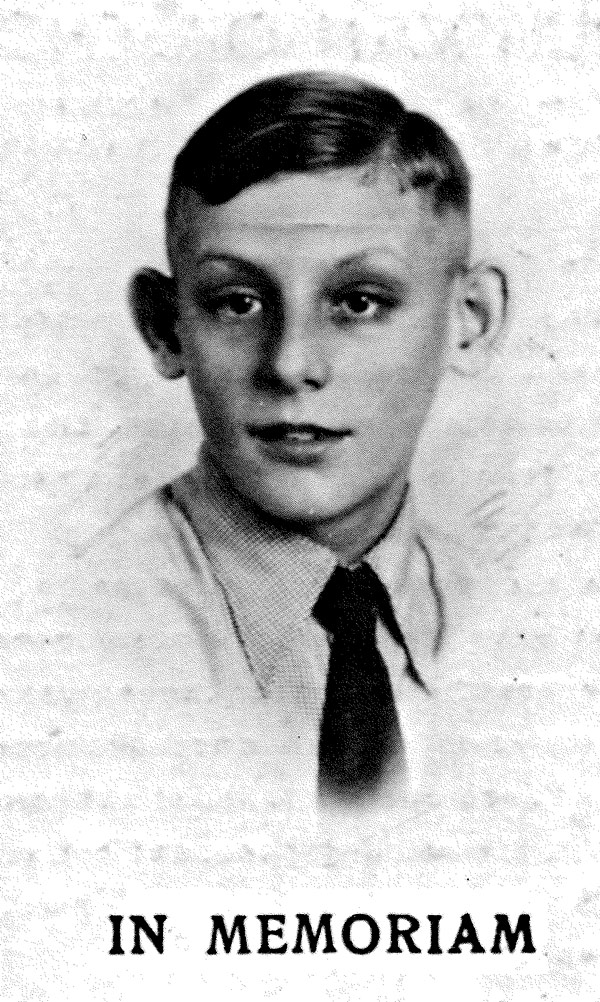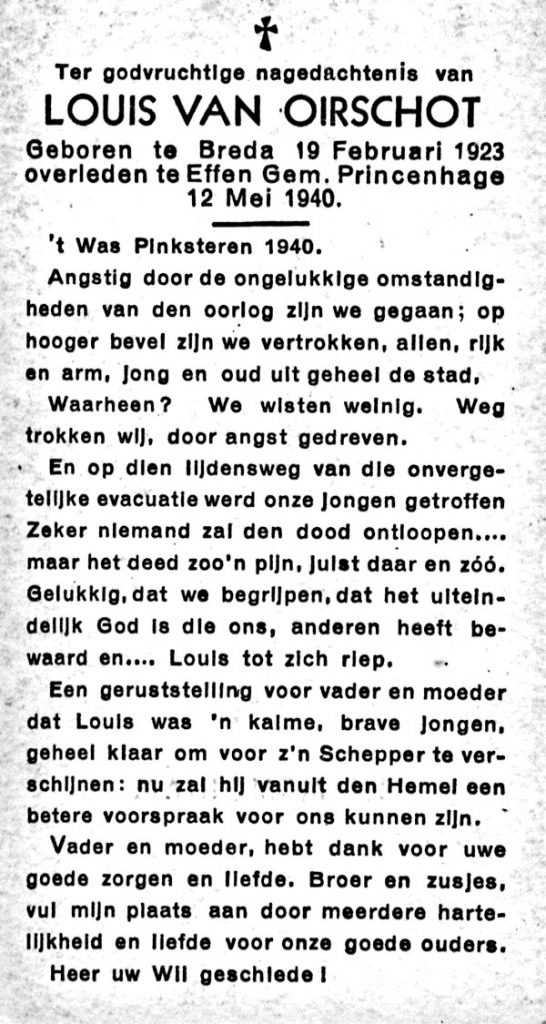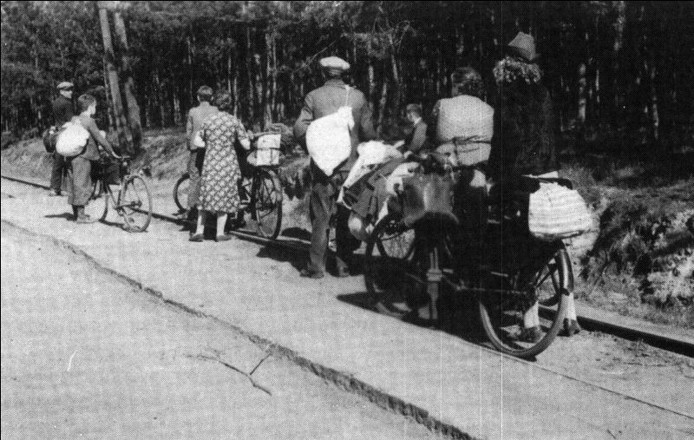Told by Michael Jones
My mother, Henrica Maria Francisca Ida Van Gils would have been 10 years old on the 12th of May, 1940, two days after the German invasion of the Netherlands began. Her hometown Breda was in danger of being caught between the lines of invading German troops and French troops advancing through Belgium. The Mayor ordered the evacuation of the city. Fifty thousand people left along two routes to prevent clogging the roads.
Growing up, Mam sought to make her experience a lesson about the evils of war, while not wanting to dwell in that place herself. She never talked about the whole experience, but would describe moments when something triggered a memory.
The family left home with everyone else, Omi and Opi with 5 kids ages 5 – 14, papers, a little money, some clothes, and one bike headed south to the Belgium town of Hoogstraten and from there to Antwerp … 70 or 80 km … on foot.
Mam was so tense and scared that early on she jumped into a ditch full of water thinking a noise on the crowded road was an airplane overhead. She didn’t make up the danger. German aircraft were engaging French troops coming North along the route the refugees were using to flee. Everyone did head for the ditches when airplanes were overhead and soldiers would cover children with their bodies.
She remembers French soldiers directing refugees to run across a bridge under attack between waves of planes. She talks about the first night on the road, sleeping on a billiard table in a bar. A second night spent in Antwerp before boarding trucks to the Dutch province of Zeeland which was thought to be safer. Men on one truck, women in another. When German troops stopped them at the border Oma remembered in horror that she didn’t have any identification papers with her. All she could think to do was burst out in tears.
Mam thinks they were in Zeeland for 8 weeks before returning to Breda to find an explosion had blown out windows in the house and someone had painted swastika grafitti in the basement. I have a copper flower pot with shrapnel holes from that time. The real horror was news that her cousin Louis van Oirschot, just 17, had died of a wound he received fleeing along a different route. They were no more than a few miles from home and he was perhaps the first casualty amongst the refugees. Fighting forced the family to abandon his body and keep moving.

His memorial card (Bid prentje] read: “Zeker niemand zal den dood ontloopen … maar het deed zoo’n pijn, juist daar en zoo.” [surely no one will escape death … but it hurt so badly, for it to happen there and in that manner.] Mam recited that sentence to me from memory almost 70 years later.

A 2008 episode of the program Andere Tijden, “De vlucht uit Breda” provides more information, images, video and stories.
